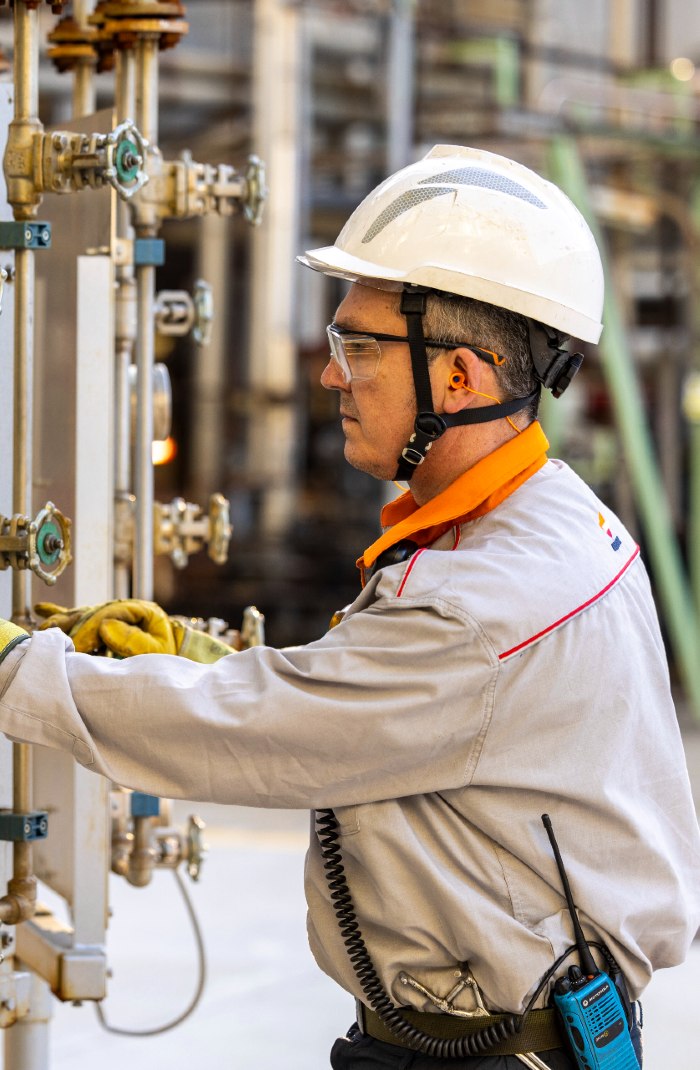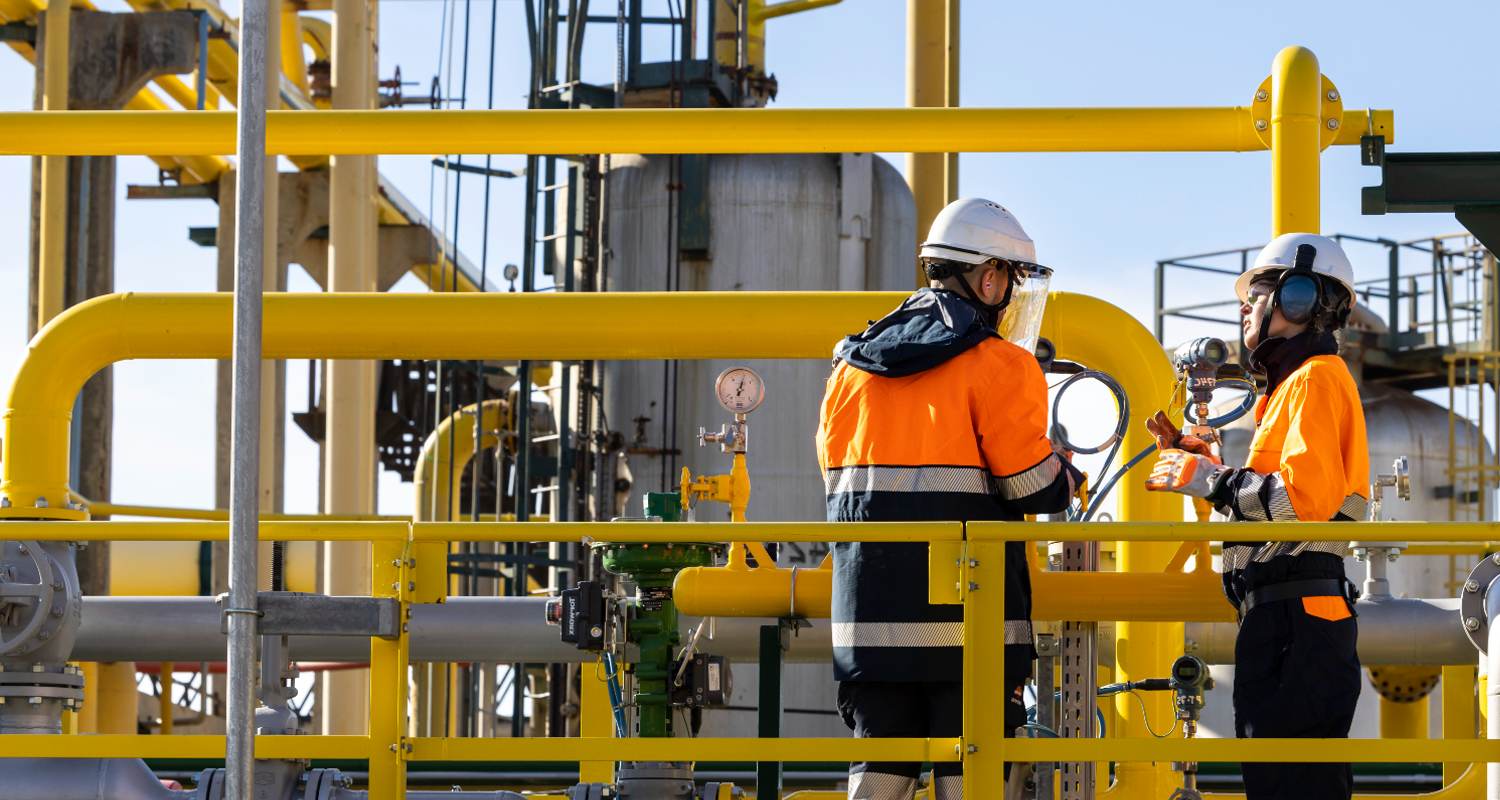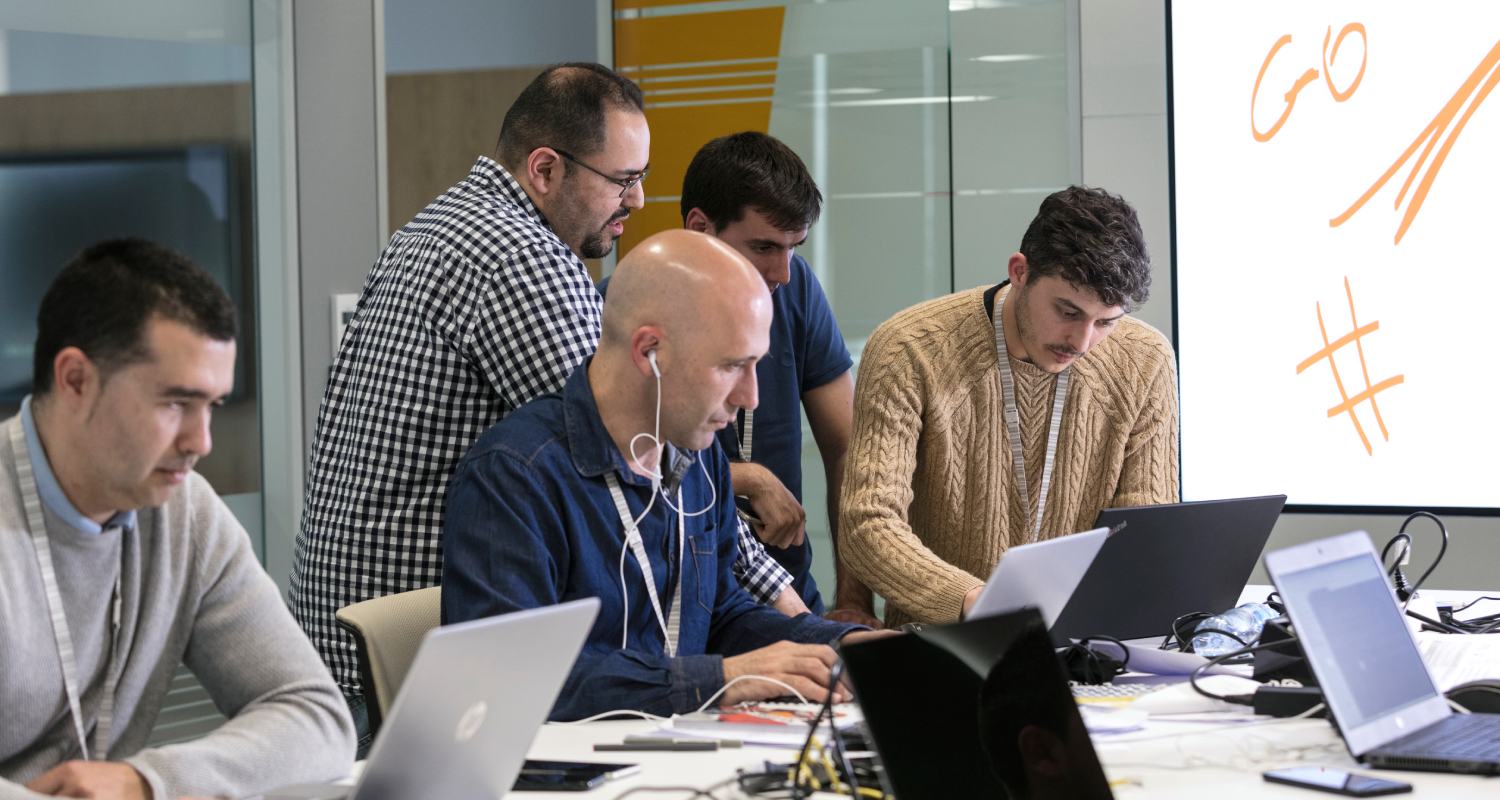
Committed to safety
Safety is fundamental and essential and must guide all our actions and commitments.

People's safety
We focus on people and their values, behavior, and attitudes to reduce accident rates in all of our operations.

Process safety
We manage process safety for the prevention of major incidents throughout the whole life cycle of our activities.

Transportation safety
Transportation is one of the key points on which to act in order to achieve our goal of being excellent in safety.

Product safety
Keeping all the uses of the product in mind, we evaluate and manage the risks throughout its life cycle to minimize its impact on people and the environment.

Lessons learned process
Lessons learned process
We work every day to ensure safety in all of our operations.
In order to achieve this, it's fundamental that safety knowledge is shared and reaches the different areas, businesses, and facilities.
We learn from the operation and detect opportunities to improve within the organization.
Crisis and emergency management
Crisis and emergency management
We are committed to the continuous improvement of all processes aimed at eliminating or minimizing the impact of the risks of its activity. In addition to its efforts and dedication to accident prevention and management, the company is prepared to respond quickly and effectively to any contingency.
We are prepared to respond quickly and effectively to any incident and, to this end, we are committed to the continuous improvement of all processes aimed at eliminating or minimizing the impact of the risks of our activity.
With this aim, we develop systems for early detection of any contingency and we train and simulate numerous emergency situations related to safety, the environment, or any other aspect that requires an adequate reaction and response.
Our model integrates crisis and emergency management at three levels, depending on whether the impact requires a response at the Company, Business, or asset level. This model brings together our own and the oil sector's extensive experience in emergency response, together with the industry's practices in crisis management.
At the first level (Company), the management team is called the Crisis Management Team (CMT) and is formed by the Executive Committee itself, led by the Chairman. This ensures the allocation of resources and support teams with 24/7 coverage, duly trained and instructed, which carry out specific drills at each level several times a year.
The second level of management is formed by the Business Support Team (BST) made up of the Business level crisis management teams. These teams are trained according to international standards such as the ICS (Incident Command System) and undergo highly specialized training and drills in response to potential contingencies.
By carrying out simulations, we can learn valuable lessons from which we can adjust our plans and program-specific training.
The Crisis and Emergency Plans develop the requirements of a company-specific Standard. As the Standard is the starting point, it ensures a minimum and homogeneous standard of management in all areas and levels of the Company. It also guarantees homogeneity in the aspects of training and drills. For example, it establishes an annual drill at the highest management level (CMT) and a combined drill every three years that simultaneously involves management teams at different levels.

Despite all the preventive activity that is implemented, the eventuality of an accident may occur. In this case, in addition to following specific management and training protocols that ensure the assignment of the highest priority required in each case, the Company has internal and external emergency response mechanisms and relies on specialized and trained teams that use the most advanced detection tools. These mechanisms contribute to minimizing impacts on the environment and people.
In the event of marine oil spills, in addition to our own response resources, we have external emergency response mechanisms, such as contracts that guarantee the rapid response of external specialists and equipment (Oil Spills Response Limited - OSRL, including access to the Global Dispersants Stockpile, Wild Well Control, Helix...).
Once the situation is under control, new preventive actions are established to avoid any recurrence.
More information on sustainability
More information on sustainability
Contact the Sustainability area
Contact the Sustainability area


